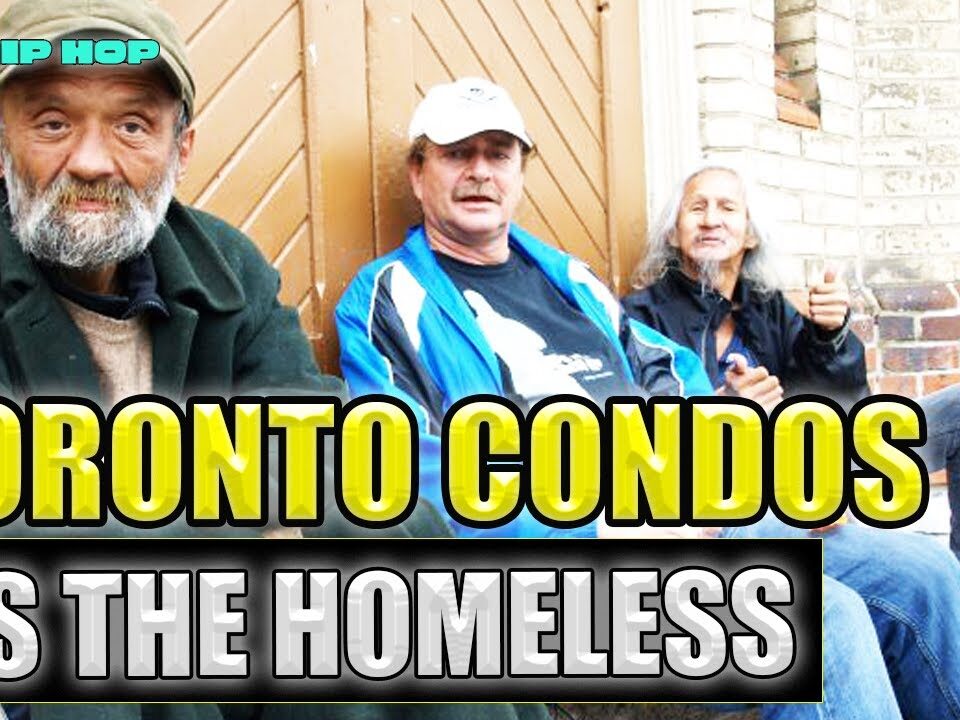Toronto’s urban landscape is evolving with new developments and challenges. As luxury condos rise, so do the numbers of those left on the streets.
Reed, a visionary director, navigates these streets, capturing heartfelt stories and discussing the vital need for change.
Reed’s Journey Back to His Roots
Reed, a celebrated video director, initially gained fame for his engaging music videos. Yet, he’s returned to his genuine passion—interviewing and documenting stories of homeless individuals across the GTA. This shift has earned him more recognition and respect, highlighting the humanity behind each camera shot.
Sherbourne and Dundas: The Condo Controversy
The neighborhood of Sherbourne and Dundas in Toronto is notorious for its high drug activity. Here, a planned new condo development has sparked debate. Critics argue that erecting luxury buildings amid homelessness only exacerbates underlying societal issues, calling for a shift towards prioritizing people over profits.
The Challenge of Urban Development
Urban development often leads to gentrification, impacting long-term residents. The West End and East End of Toronto face these changes, raising concerns about displacement of existing communities. While gentrification has its merits, the impact on vulnerable populations cannot be ignored. Striking a balance remains a key challenge.
Reed’s efforts in highlighting these issues have not gone unnoticed. Through collaborations and interviews, he brings the conversation to the forefront, advocating for affordable housing and support for the homeless. His work challenges perceptions and encourages actionable change.
A Closer Look at the Streets
In Toronto’s downtown, parks are filled with tents as homelessness becomes more visible. The challenge lies in providing adequate housing solutions rather than erecting more condos. Addressing homelessness means focusing on shelters and mental health support, rather than just temporary fixes.
Reed engages with the community to understand their struggles, drawing attention to systemic problems. The issue isn’t just about building houses but creating spaces where people can heal and thrive. Reed’s work pushes for sustainable, long-term solutions.
Government’s Role and Responsibilities
The role of the government is critical in addressing homelessness. While some leaders urge self-reliance, many homeless individuals face mental health barriers. There’s a pressing need for mental health institutions and policies that support those unable to work.
Building more luxury condos without creating shelters exacerbates the problem. Public policies should incentivize affordable housing and mental health services, ensuring everyone has a fair chance to succeed. Reed’s advocacy focuses on meaningful reforms to improve lives.
Community Initiatives and Solutions
Supporting community-led initiatives can bridge gaps where government efforts fall short. Reed’s approach includes collaborating with local organizations to address immediate needs while advocating for systemic change. His work is a call to action for individuals to get involved.
Providing basic needs like food and shelter, along with mental health care, can uplift communities. Reed emphasizes the importance of integrated services that provide sustainable support, advocating for more shelters and comprehensive care facilities.
A Call for Affordable Living
The cost of living in Toronto is unsustainable for many, leading to increased homelessness. Reed argues for fair rent prices and more affordable housing options to prevent more people from falling into poverty. Everyone deserves a chance at stability and security, not just those who can afford it.
More shelters and comprehensive care facilities are essential to address the crisis. By reducing rent prices and offering support services, the cycle of homelessness can be broken. Reed’s advocacy brings these issues into public discussion, pushing for a more inclusive society.
Conclusion and Future Outlook
Reed’s journey shines a light on Toronto’s harsh realities, sparking discussions on homelessness and urban development. His work underscores the need for empathy and action. The path forward lies in collaboration and commitment to creating equitable opportunities for all.
By addressing the root causes and focusing on holistic solutions, society can move towards a more inclusive future. Reed’s initiatives remind us that change is possible, one story at a time.
Reed’s work emphasizes understanding and action for Toronto’s future.
Through community efforts and advocacy, a balanced approach to housing and support can transform the city.










